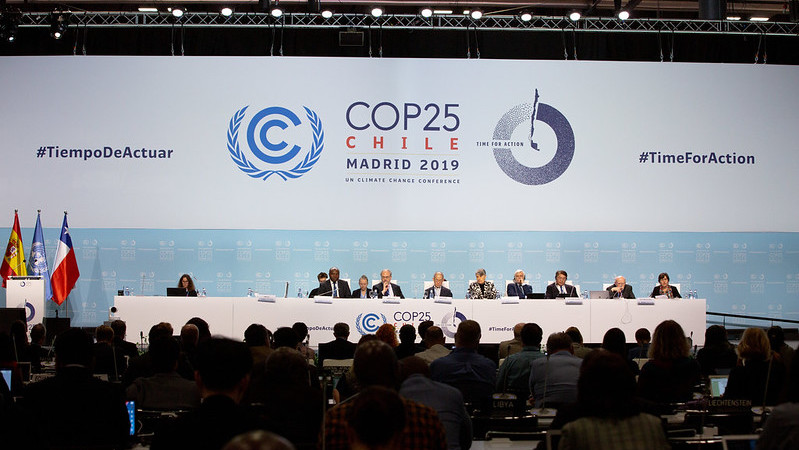Countries have failed to reach agreement on the time period future climate pledges should cover at UN talks in Madrid.
Pledges under the Paris Agreement are supposed to be aligned for all countries starting from 2031. But draft conclusions released at the Cop25 talks on Friday showed that no agreement was found on the length of the windows, with a wide range of options remaining on the table, including five years, ten years or various ways of mixing both.
Observers say shorter time frames will be more likely to foster rapid cuts to pollution.
The failure to move forward means the issue is unlikely to be resolved at these talks, which conclude next week.
We need your help… Climate Home News is an independent news outlet dedicated to the most important global stories. If you can spare even a few dollars each month, it would make a huge difference to us. Our Patreon account is a safe and easy way to support our work.
Countries appeared to view the matter as a low priority. In particular, the EU saw little need to reach agreement at this session and took no clear position on which option they back.
“In our view, time frames that are compatible with the Paris agreement are five years or ten years, or a combination of both,” an EU negotiator told Climate Home News.”We have not expressed preferences for any of these three options for the time being.”
Chile delays emissions goal boost at its own UN climate talks
Earlier this week, Greenpeace’s Li Shuo predicted no solution would be reached in Madrid without a clear move by the EU to clarify their position.
The delay in deciding on common time frames was a “missed opportunity”, according to Yamide Dagnet from the World Resources Institute, adding that she doesn’t understand why an already overdue decision was delayed again.
“Countries could not event agree on a text to text to the ministers,” she says. “Even if there were political tensions, it should have been a simple decision.”
Dagnet adds that little time was given in the official agenda for countries to make progress on the issue. “Only two hours were given for countries to make a decision,” she says. “What’s the point of waiting five years to make a decision about a five year cycle at a time of climate emergency?”
Parties also failed to agree on the deadline for when a final decision should be made.
EU, Canada and Australia said agreement should be reached by 2023 at the latest, although it could be made earlier. Saudi Arabia supported suspending negotiations on the topic until 2023, while the US said they should be suspended until 2022.
‘Common timeframes’: How they could speed or slow climate action
With the negotiations running out of designated time, and no extra time given to try to reach consensus, China invoked a delay clause which pushes the discussion to the next climate talks in June next year. Official approval of this outcome could occur at a closing plenary set to take place on Monday, although further discussion could happen at this plenary.
But other countries said a decision should have been made at this session, including the small island state, least developed country and Latin American country groupings as well as Indonesia.
Chile, which holds the presidency of the conference, had hoped to drive an outcome on the so-called common time frames issue. However, diplomatic focus has instead largely been put on reaching consensus on rules for an international carbon market.
Those talks have also made slow progress during the meeting’s first week, with new drafts of negotiating text delayed as negotiators stuck to their positions.
